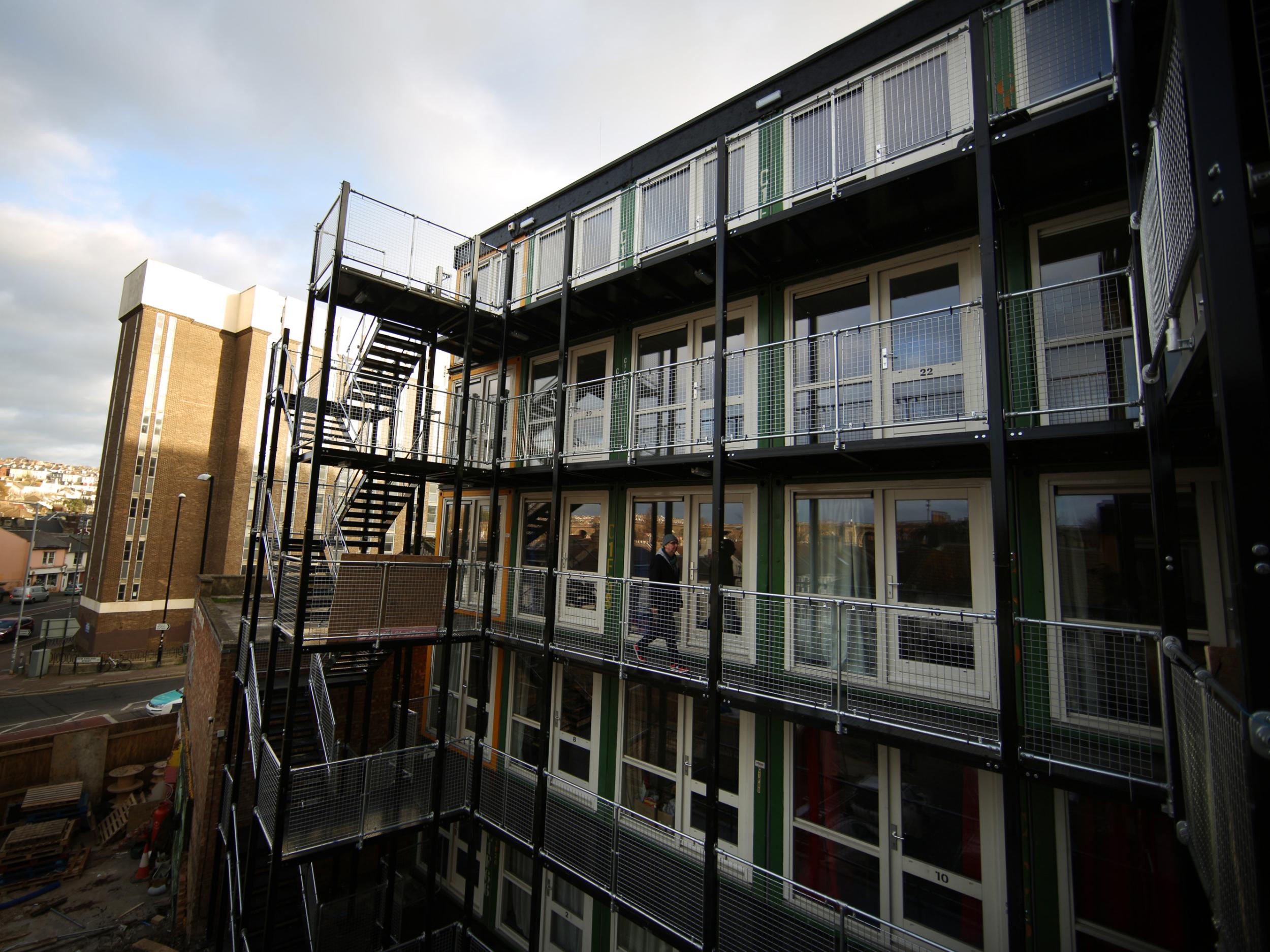Thousands of children forced to grow up in shipping containers and offices because of government’s ‘catastrophic failure’ to address homelessness
The true figure is considerably higher than government estimates, research suggests

More than 210,000 children are estimated to be homeless across England, with thousands growing up in shipping containers, office blocks and B&Bs, often miles away from their schools, research shows.
Politicians and campaigners have accused ministers of a “catastrophic failure” to address the housing crisis after a study by the children’s commissioner found the true number of children living without a permanent home was considerably higher than government estimates.
The latest government figures show 124,490 minors were housed in temporary accommodation in England at the end of 2018, an increase of 80 per cent since the same period in 2010.
But the report states that this does not include those who are “sofa-surfing”, often in very cramped conditions, of which there were an estimated 92,000 children in 2016-17.
Anne Longfield, the children’s commissioner for England, also warned that official figures did not include a small but “highly vulnerable” group of children who had been placed in temporary accommodation by children’s services rather than by the council’s housing department.
This includes families who have been deemed to have made themselves “intentionally homeless”, and those with no recourse to public funds as a result of their immigration status – there is no publicly available data on the numbers of the latter group.
The report also suggests children have been held in temporary housing for considerable lengths of time, with around two in five children – an estimated 51,000 – having been there for at least six months in 2017, and around one in 20 – around 6,000 – for at least a year.
As a result of a shortage of good quality, self-contained temporary accommodation, many families are being placed in homes of poor quality with insufficient space, said the researchers.
Some councils – including Brighton, Cardiff, Ealing and Bristol – are using shipping containers as temporary accommodation for families, which become very hot in summer and are often not properly designed with children in mind, according to the report.
It also describes cases whereby families have been moved into converted office blocks, sometimes sleeping in a single room that also contains their cooking facilities.
Ms Longfield said: “Something has gone very wrong with our housing system when children are growing up in B&Bs, shipping containers and old office blocks.
“Children have told us of the disruptive and at times frightening impact this can have on their lives. It is a scandal that a country as prosperous as ours is leaving tens of thousands of families in temporary accommodation for long periods of time, or to sofa-surf.”
Polly Neate, chief executive of Shelter, said the report was a “damning indictment” of the government’s “catastrophic failure” to address the housing emergency, and that it should act as a wake-up call to ministers to increase housing benefit and build more social homes.
“We constantly hear from struggling families forced to accept unsuitable, and sometimes downright dangerous accommodation because they have nowhere else to go. The devastating impact this has on a child’s development and wellbeing cannot be overstated,” she said.
Labour’s shadow housing secretary John Healey MP said the findings should make ministers “hang their heads in shame”, adding that no child should face returning to school in September without a home to live in.
Councillor Martin Tett, of the Local Government Association, said the “severe lack” of social rented homes available meant councils were left with no choice but to place households into temporary accommodation, including – in emergencies – bed and breakfasts.
Almudena Lara, from the NSPCC, said the descriptions in the report of conditions some children were living in belong in a “Dickensian novel”, adding: “Homelessness has terrible consequences on a child’s mental and emotional state, and families should not have to endure such a punishing way of life.”
A government spokesperson said: “No child should ever be without a roof over their head and we are working to ensure all families have a safe place to stay. If anyone believes they have been placed in unsuitable accommodation, we urge them to exercise their right to request a review.
“We have invested £1.2bn to tackle all types of homelessness, including funding a team of specialist advisers who have, in two years, helped local authorities to reduce the number of families in B&B accommodation for more than six weeks by 28 per cent.”
Join our commenting forum
Join thought-provoking conversations, follow other Independent readers and see their replies
Comments